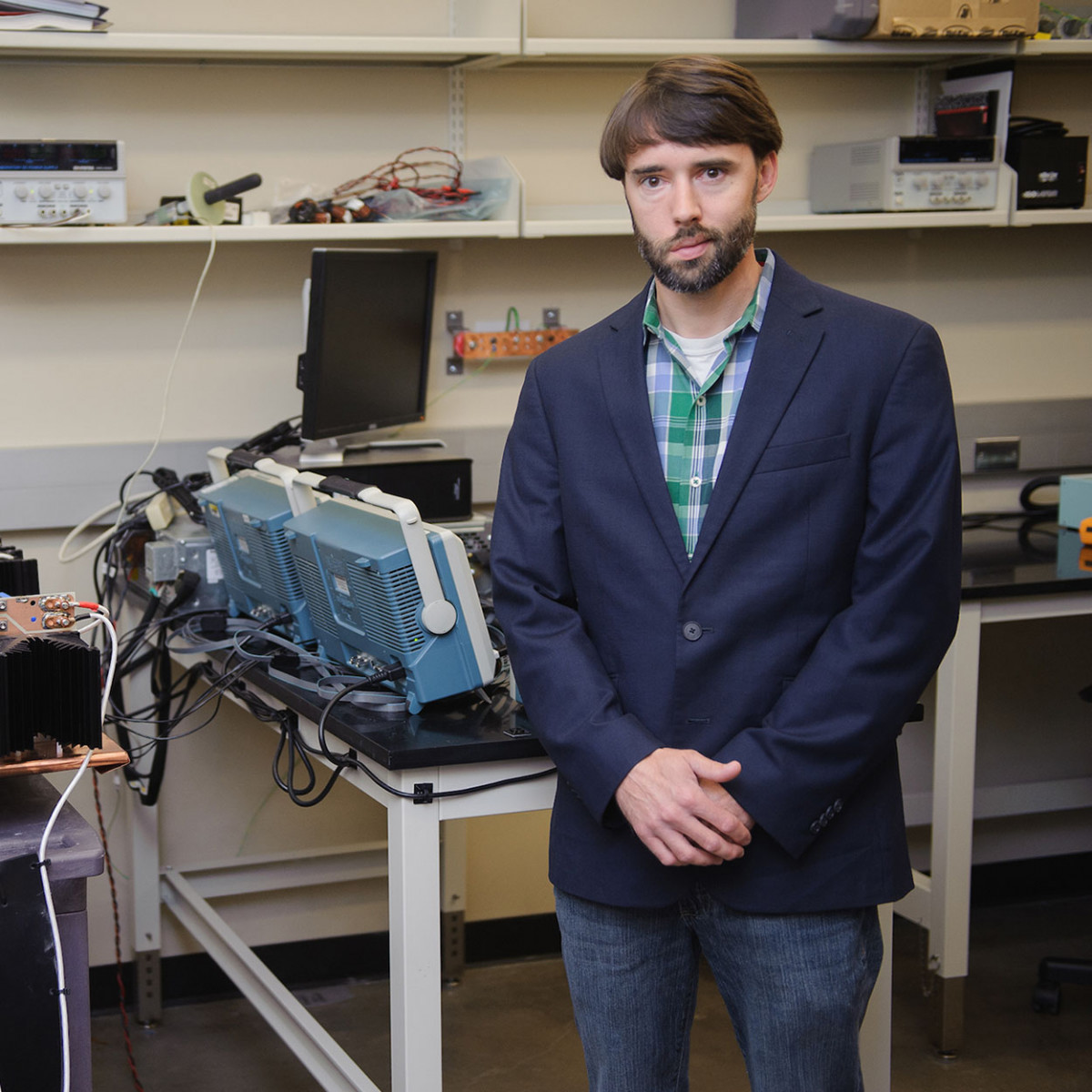
About
Our department’s vision is to be nationally recognized for high-quality educational programs and research.

Message from the Department Head
Welcome to UA’s Department of Electrical and Computer Engineering. Our department’s goal is to be nationally recognized for high-quality educational programs and research. To achieve this goal, we have assembled an outstanding faculty and staff that are focused on instruction and research with both undergraduate and graduate students from across the country and around the world. Our BS programs in electrical engineering and computer engineering have been continuously accredited by ABET for many years. To keep pace with changing industry demands, new educational programs are introduced such as our new BS in Musical Audio Engineering. We take pride in experiential learning opportunities that we provide to our students, including multiple student competition teams, formalized undergraduate research programs, and an extensive Cooperative Education program.
For graduate students, we offer opportunities to engage in state-of-the-art research and instruction with our award winning faculty in core areas including embedded systems, electromechanical and energy systems, devices and materials, and electromagnetics. Our students have access to outstanding facilities and benefit from low student-to-faculty ratios while they pursue research-based MS or PhD degrees.
I hope you will browse through our website and contact me if you have any questions.
Kenneth Ricks, Ph.D.
Professor and Interim Department Head
Department Updates
Site Updates News Feed
UA Students Win DOE Award at National EnergyTech Competition
October 22, 2025
Dr. Taylor receives a grant to develop a radar for studying riverbeds
September 15, 2025
Brett Fassler received a Best Paper Award at 2nd IEEE International Conference on Machine Intelligence and Smart Innovation
May 19, 2025
2025 IEEE Southeast Conference
April 7, 2025
ECE faculty awarded a NOAA grant for Detection, Monitoring, and Removal of Microplastics
September 4, 2024
UA Undergraduates Present Summer Research at ICFDA 2024
August 14, 2024
Alabama Teachers Join Engineering Research Labs
July 25, 2024
ECE Faculty receive a grant dor development of Rare-Earth-Free magnets
July 12, 2024
UA Undergraduates Research in the Czech Republic
July 5, 2024
ECE Poster Competition Winners
May 16, 2024
Dr. Shunqiao Sun receives a CAREER award
April 11, 2024
Internship Opportunity: Mazda-Toyota Paid Internships for ECE Students
February 23, 2024
Dr. Sevgi Zubeyde Gurbuz is named Hewson Engineering Faculty Fellow
February 5, 2024
Dr. Ajun Song is featured in an article about benefits of undergraduate research
February 5, 2024
UA Leading Project to Give EV Batteries Second Life
October 24, 2023
Mission
The mission of the Department of Electrical and Computer Engineering is to serve the state, nation, and global community by empowering the next generation of leaders through outstanding education and mentorship, while pushing the boundaries of knowledge through groundbreaking research and innovation.
Goals
The Department will:
- provide high-quality and broad-based undergraduate and graduate education in electrical, computer, and musical audio engineering;
- conduct high-quality research programs that will advance the state of knowledge;
- contribute to the engineering profession and society, through service activities and career development.
Vision
The Department of Electrical and Computer Engineering will be a nationally recognized leader in student centered education, research, and innovation.
